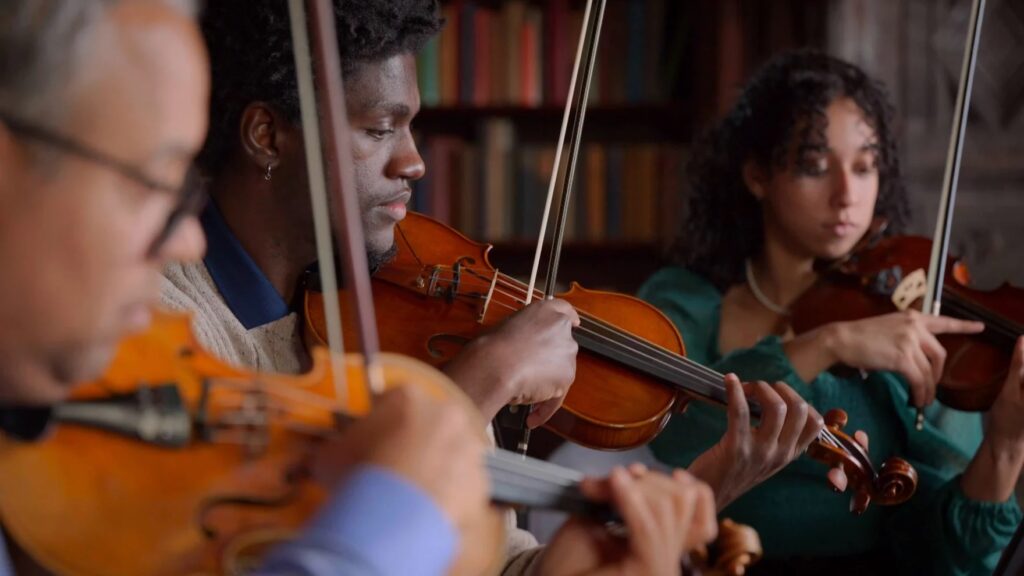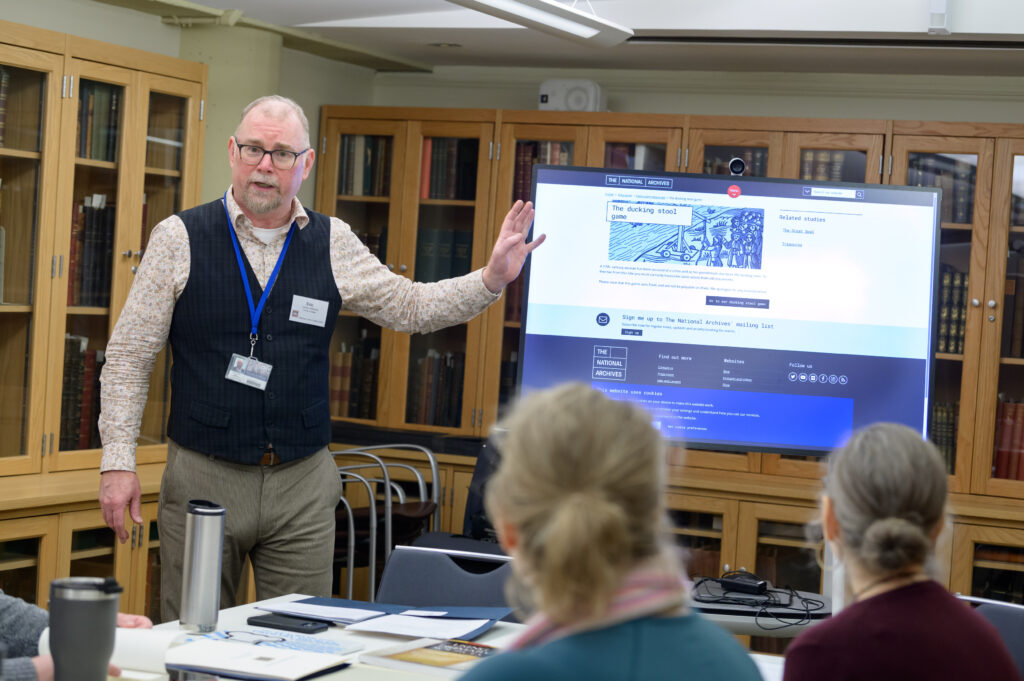Manuscript from Watkinson Library Plays Big Role in New Connecticut Public Series
A rare piece of musical history from Trinity College’s Watkinson Library plays an integral part in a new series from Connecticut Public called “Unforgotten: Connecticut’s Hidden History of Slavery.” The special project features radio storytelling, in-depth videos, digital stories, pictures, a podcast, and a television special.

The fourth chapter of the five-part series, “A Musician’s Melodies Come Back to Life,” explores the music of perhaps the earliest published free Black composer in America, Sawney Freeman of Essex, Connecticut. Freeman’s music manuscript is archived at the Watkinson Library in Trinity’s Raether Library & Information Technology Center.
According to Eric Johnson-DeBaufre, rare books and special collections librarian at the Watkinson, Freeman published a collection of his music in 1801. “An ad for it appeared in the Connecticut Journal on September 30, 1801, and identified Freeman as ‘a free Black man in the State of Connecticut,’” Johnson-DeBaufre said. “Sadly, none of the printed copies appear to have survived, but the father of Watkinson’s first librarian—Gurdon Trumbull of Stonington, Connecticut—must have had access to a copy and copied out Freeman’s music by hand into his copybook. Without that manuscript, we would not have any of Freeman’s compositions.”

Johnson-DeBaufre said that it’s possible no one would have known what that manuscript contained were it not the for the research work of two musicologists in the 1970s and early 1980s, Kate Keller and Carolyn Rabson. “They created the census of early American secular music in manuscript form that made it possible for the researchers in Essex not only to know that Freeman was a composer, but also where to find the manuscript containing his music,” he said.
The audio and video series from Connecticut Public features performances of music by Freeman. “It’s a story of mystery and music. An enslaved man’s music was hidden for centuries,” writes Connecticut Public. “Go on a journey to rediscover Sawney Freeman’s music—tucked away in a library—and hear it performed today.”
Explore the series “Unforgotten: Connecticut’s Hidden History of Slavery” here.
